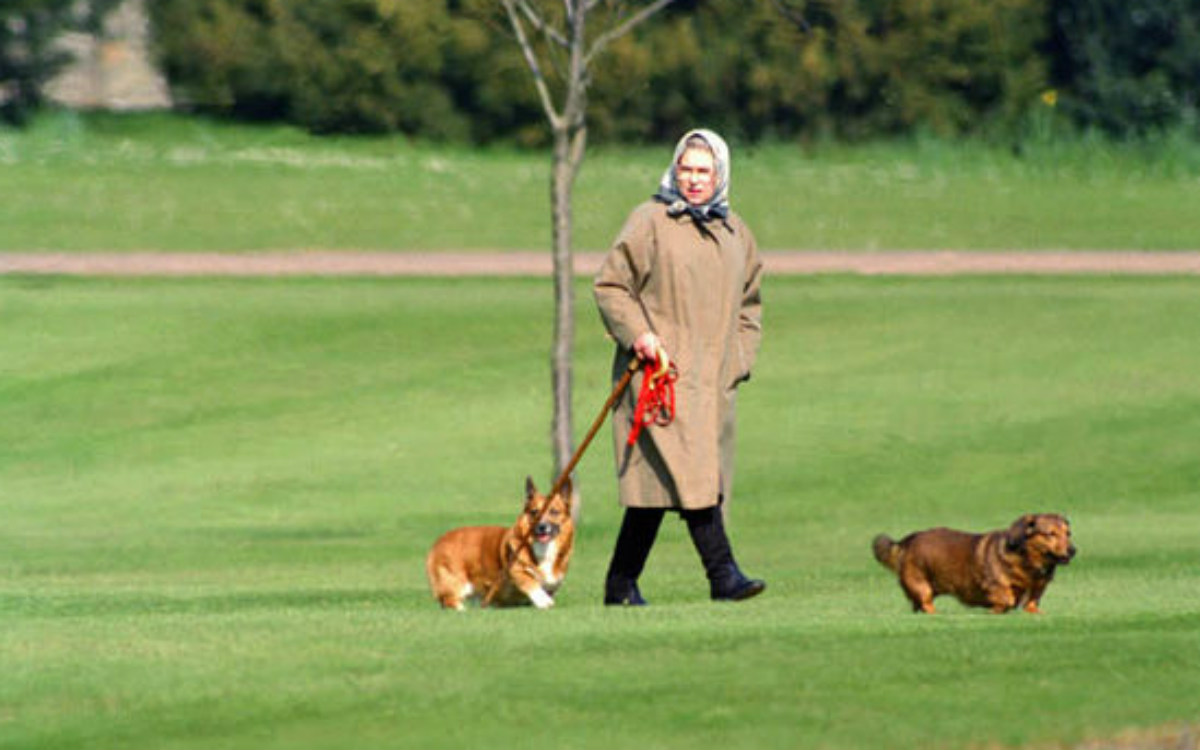Minister ate biscuits meant for Queen’s corgis
And other stories from the stranger side of life

A free daily email with the biggest news stories of the day – and the best features from TheWeek.com
You are now subscribed
Your newsletter sign-up was successful
A government minister who visited the Queen accidentally ate biscuits meant for the monarch’s corgis, reported the Daily Mail. Alan Johnson, the former Labour health secretary, admitted to mistakenly munching on the dog food following a meal at Windsor Castle in 2008. His “amusing gaffe” was revealed in Queen Of Our Times: The Life Of Elizabeth II, a new book by royal biographer Robert Hardman, which is published today.
World’s largest potato is not a potato
A New Zealand couple who believed they had dug up the world’s largest potato “have had their dreams turned to mash” after Guinness World Records wrote to them to say that scientific testing had found it wasn’t a potato but a tuber, reported The Guardian. “We can’t say we don’t believe you, because we gave them the DNA stuff,” said Colin Craig-Brown, who first hit the tuber with a hoe last August when gardening with his wife.
The Week
Escape your echo chamber. Get the facts behind the news, plus analysis from multiple perspectives.

Sign up for The Week's Free Newsletters
From our morning news briefing to a weekly Good News Newsletter, get the best of The Week delivered directly to your inbox.
From our morning news briefing to a weekly Good News Newsletter, get the best of The Week delivered directly to your inbox.
Dodo may be brought back to life
The dodo could be brought back from extinction after an entire genome of the bird was sequenced for the first time, said The Daily Telegraph. Beth Shapiro, a professor of ecology and evolutionary biology at the University of California, Santa Cruz, said that her group would soon publish the complete DNA of a specimen in the Natural History Museum of Copenhagen. The flightless 3ft-tall bird was wiped out in the 17th-century, just 100 years after it was first discovered on the island of Mauritius.
A free daily email with the biggest news stories of the day – and the best features from TheWeek.com
-
 Why are election experts taking Trump’s midterm threats seriously?
Why are election experts taking Trump’s midterm threats seriously?IN THE SPOTLIGHT As the president muses about polling place deployments and a centralized electoral system aimed at one-party control, lawmakers are taking this administration at its word
-
 ‘Restaurateurs have become millionaires’
‘Restaurateurs have become millionaires’Instant Opinion Opinion, comment and editorials of the day
-
 Earth is rapidly approaching a ‘hothouse’ trajectory of warming
Earth is rapidly approaching a ‘hothouse’ trajectory of warmingThe explainer It may become impossible to fix
-
 Epstein files topple law CEO, roil UK government
Epstein files topple law CEO, roil UK governmentSpeed Read Peter Mandelson, Britain’s former ambassador to the US, is caught up in the scandal
-
 Iran and US prepare to meet after skirmishes
Iran and US prepare to meet after skirmishesSpeed Read The incident comes amid heightened tensions in the Middle East
-
 Israel retrieves final hostage’s body from Gaza
Israel retrieves final hostage’s body from GazaSpeed Read The 24-year-old police officer was killed during the initial Hamas attack
-
 China’s Xi targets top general in growing purge
China’s Xi targets top general in growing purgeSpeed Read Zhang Youxia is being investigated over ‘grave violations’ of the law
-
 Panama and Canada are negotiating over a crucial copper mine
Panama and Canada are negotiating over a crucial copper mineIn the Spotlight Panama is set to make a final decision on the mine this summer
-
 Why Greenland’s natural resources are nearly impossible to mine
Why Greenland’s natural resources are nearly impossible to mineThe Explainer The country’s natural landscape makes the task extremely difficult
-
 Iran cuts internet as protests escalate
Iran cuts internet as protests escalateSpeed Reada Government buildings across the country have been set on fire
-
 US nabs ‘shadow’ tanker claimed by Russia
US nabs ‘shadow’ tanker claimed by RussiaSpeed Read The ship was one of two vessels seized by the US military